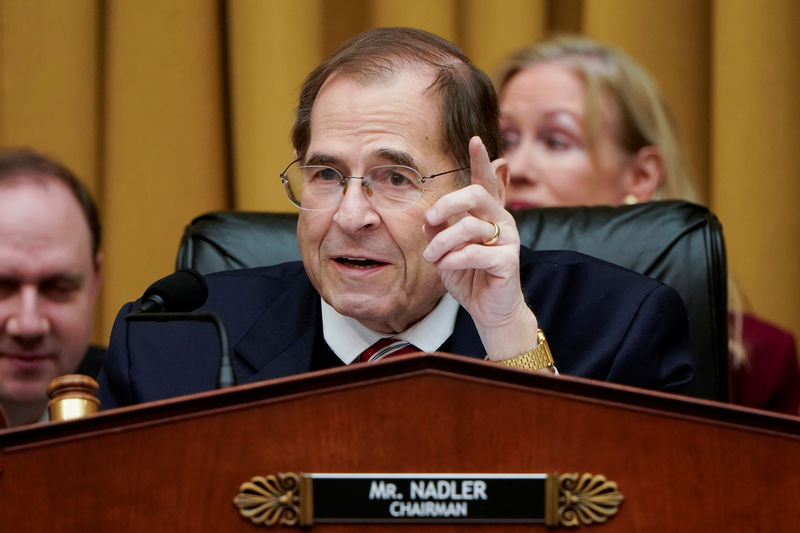(Reuters) - A top U.S. lawmaker joined the chorus of officials demanding answers from the Bureau of Prisons over the apparent suicide of Jeffrey Epstein in federal custody.
The chairman and ranking member of the House Judiciary Committee, Democrat Jerrold Nadler, sent a scathing letter on Monday to the acting director of federal prisons stating that the "competency and rigor of our criminal justice system has been marred."
A representative for the Bureau of Prisons and acting director Hugh Hurwitz were not immediately available to comment early on Tuesday.
Epstein was awaiting trial on sex trafficking charges when he was found dead on Saturday, having apparently hanged himself in his cell at the Metropolitan Correctional Center (MCC) in lower Manhattan.
The 66-year-old financier had been on suicide watch, but apparently the watch was lifted. According to the New York Times, several high-ranking prison officials, including the prison's chief psychologist, would have to approve lifting it.
The prison was also criticized for being understaffed and for not performing regular checks on Epstein, according to an official who was not authorized to speak on the matter.
Epstein was arrested on July 6 and pleaded not guilty to federal charges of sex trafficking involving underage girls as young as 14.
Nadler's letter echoes comments from U.S. Attorney General William Barr, a Trump appointee, who on Monday criticized "serious irregularities" at the federal prison, and said that the sex-trafficking investigation would continue.
"Any co-conspirators should not rest easy," Barr, the top U.S. law enforcement official, said at an event in New Orleans.
Epstein was already a registered sex offender after pleading guilty in 2008 to Florida state charges of unlawfully paying a teenage girl for sex. Before his conviction, he had counted the rich and powerful, including U.S. President Donald Trump and former President Bill Clinton, among his associates.
Nadler said if the allegations of mistakes made at the prison were true, it would demonstrate "severe miscarriages of or deficiencies in inmate protocol and has allowed the deceased to ultimately evade facing justice."
Nadler and other lawmakers asked for answers ranging from the prison's suicide-prevention policies to information on the guards on duty and whether video cameras were in use.
It asks that the answers be provided by Aug. 21 and adds that it is imperative that his committee, which oversees the Department of Justice receive answers.
Barr said on Saturday that he had asked the Justice Department's inspector general to investigate Epstein's death.
In his remarks on Monday at the Grand Lodge Fraternal Order of Police's National Biennial Conference, Barr said the criminal case against Epstein was personally important to him and that his death denied his victims the chance to confront Epstein in a courtroom.
"I was appalled - and indeed the whole department was - and frankly angry to learn of the MCC's failure to adequately secure this prisoner," Barr said. "We are now learning of serious irregularities at this facility that are deeply concerning and demand a thorough investigation."
Barr did not say what those irregularities were.
It was not clear why Epstein was taken off the suicide watch. He was in a cell by himself when his body was found.
At MCC, two jail guards are required to make separate checks on all prisoners every 30 minutes, but that procedure was not followed on the night of Epstein's death, according to an official who was not authorized to speak on the matter. In addition, guards are required to make another check every 15 minutes on prisoners who are on suicide watch.
The New York Times, citing prison and law-enforcement officials, reported that one of the two people guarding Epstein was not a full-fledged corrections officer and neither guard had checked on him for several hours before he was discovered.

The New York City medical examiner said that an autopsy had been completed on Epstein on Sunday but that a determination on the cause of death was still pending.